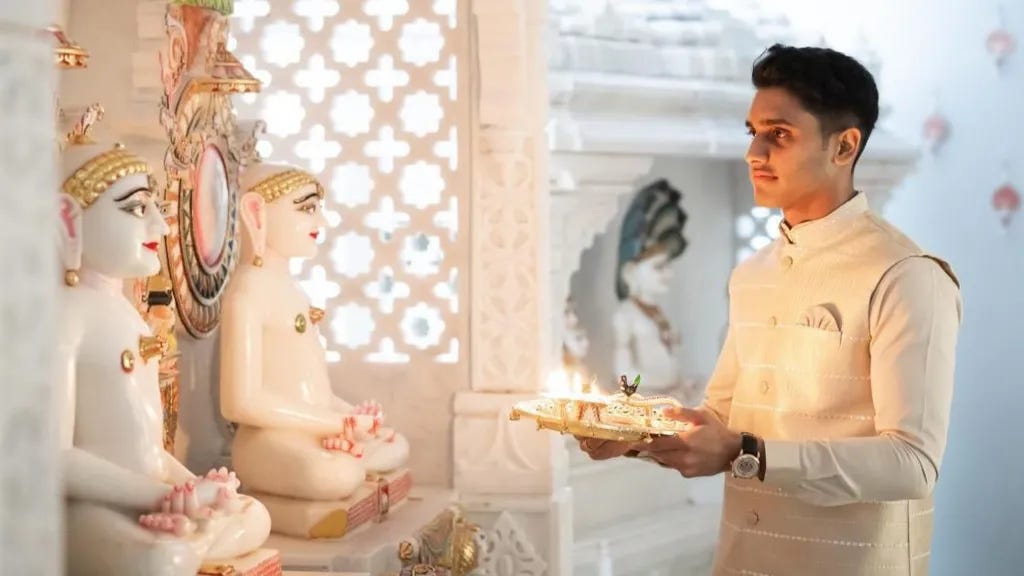Diwali: A Festival of Meaning Beyond Fireworks and Sweets
Diwali, the Festival of Lights, is more than just a celebration of fireworks, sweets, and lit divas. Across different religions and regions, Diwali holds deep spiritual significance and is observed for various reasons.
Hindus, Jains, Sikhs, and Buddhists each celebrate Diwali in their unique way, with different dates and traditions marking the occasion. Hindus and Jains celebrate on October 31, Sikhs on November 1, and Buddhists on November 15. Members of these faiths from all over London shared with the BBC what Diwali means to them, highlighting the festival's profound spiritual essence.
"It's honestly one of my favourite times of the year," says Vedika Apte, 23, from West London. The medical student has spent the past few days making ladoos—traditional round sweets—with her mother. "We're still going to be eating them in two weeks," she laughs, but for Vedika, the festivities go far beyond food.
Vedika, who follows the Marathi tradition of Diwali, explains that while Diwali involves family gatherings, dancing, and lighting candles, it is also a time for personal reflection and gratitude. “It’s not all just fireworks,” she says, adding that Diwali reminds her to be thankful for everything in life, including the divine.
The five-day festival begins with Dhanteras, a day when people purchase gold and metals to bring wealth and good luck. On the second day, Narka Chaturdashi, Vedika's family engages in a cleansing ritual using oils and sandalwood powder, which is believed to prepare the body for the winter months. The following day marks the worship of Lakshmi, the goddess of wealth, and the third day is filled with prayers for blessings, prosperity, and the well-being of the family.
The fourth day is known as "husband and wife day," where wives pray for their husbands' long life and receive gifts in return, while the final day, Bhai Dooj, involves sisters praying for their brothers’ well-being, with the brothers promising to protect them in return.
For Dev, 19, a Jain from North London, Diwali is a deeply spiritual occasion. For Jains, Diwali marks the moment when Lord Mahavira, the founder of Jainism, reached Moksha—eternal bliss. Dev explains that Diwali is not about feasting and partying but about self-reflection, fasting, and cleansing the body in preparation for prayers and rituals aimed at attaining liberation and breaking the cycle of reincarnation. Instead of fireworks, Jains light divas (oil lamps) to honor the divine and maintain peace in the atmosphere.
For Beant Dhillion, a trainee solicitor from East London, Diwali is also a time for introspection. "I used to go to my bibi's [grandmother's] house and help make samosas and gulab jamuns," he says, but now he focuses on the deeper meaning behind the celebration. Sikhs commemorate Bandi Chhor Divas, which marks the release of Guru Hargobind Sahib and 52 Hindu princes from wrongful imprisonment in 1619. "It's about good over evil," Beant explains, reflecting on the revolutionary message central to Sikhism.
Venerable Phramaha Bhatsakorn Piyobhaso, a Thai Buddhist from South-West London, celebrates Loy Krathong during this time, a festival dedicated to honoring the water goddess, Phra Mae Khongkha. For him, it is a moment to reflect on survival, give thanks to nature, and seek forgiveness. Thai Buddhists celebrate by making krathongs—boats made from banana leaves filled with candles and incense—which are floated on rivers as offerings. The festival is a chance to celebrate, apply Buddhist teachings to daily life, and connect with nature.
Across cultures and faiths, Diwali serves as a time for reflection, gratitude, spiritual renewal, and a celebration of life’s blessings. It’s a reminder that Diwali’s significance goes far beyond its outward celebrations, deeply rooted in spiritual practices and the quest for inner peace.
Listen to the best of BBC Radio London on Sounds and follow BBC London on Facebook, X, and Instagram. Share your story ideas with us at hello.bbclondon@bbc.co.uk.


